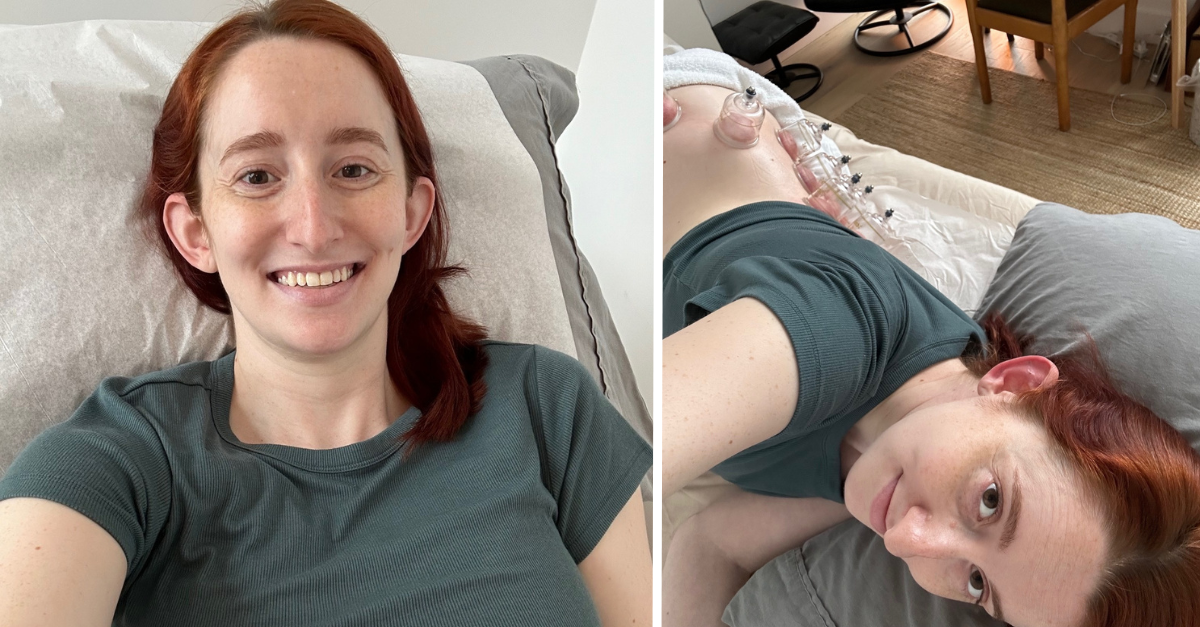
IN THIS ARTICLE
Pregnancy is hard — even the "easiest" pregnancies are challenging. It's a huge change, both physically and emotionally, and expecting parents have a lot of preparation to do. Luckily, there are so many things you can do to prepare your body and mind for becoming a parent. From reading pregnancy books to taking childbirth classes to hiring doulas to trying prenatal yoga, there are options for everyone.
Earlier this year, I gave birth to a beautiful baby girl. My pregnancy was relatively uncomplicated, but toward the end of my pregnancy, I was dealing with a lot of aches and pains, as well as anxiety about becoming a parent.
I had always been interested in trying acupuncture, so at 36 weeks pregnant I decided to go to my first appointment. I knew acupuncture could help with some of my pregnancy symptoms, and a few of my friends said they had great experiences with prenatal acupuncture.
I booked a session with Dr. Sarah Biffen, who also offered cupping. Before my appointment, I spoke with her about the benefits of prenatal acupuncture and prenatal cupping.

Here's the conversation we had.
Mom.com: How can acupuncture and cupping be beneficial during pregnancy?
Dr. Sarah Biffen: Acupuncture and cupping can offer many benefits throughout pregnancy by promoting overall well-being and addressing specific complaints. Acupuncture works by stimulating specific points on the body to regulate the flow of energy (Qi), blood, and fluid, and improve metabolic and physiological functions. From the perspective of Chinese medical theory, this can help reduce stress, alleviate pain, improve sleep, support circulation, regulate hormones, and more.
Acupuncture can also be used in a very ‘Western’ sense, in relieving spasming, aches, pains, headache, and muscle tension. As pregnancy progresses, folks will often find themselves experiencing various unpleasantries for the first time, or a sudden exacerbation of what’s already been occurring — all while not being able to take most of their usual medications, and going through the wildest hormonal journey of their life. Acupuncture and Chinese medicine can offer a low intervention and effective means of counteracting a lot of rapid-fire body changes.
Somewhat famously, acupuncture and dietary supplementation can be extremely helpful in abating common pregnancy complaints such as nausea, headache, and insomnia. But the list goes on.
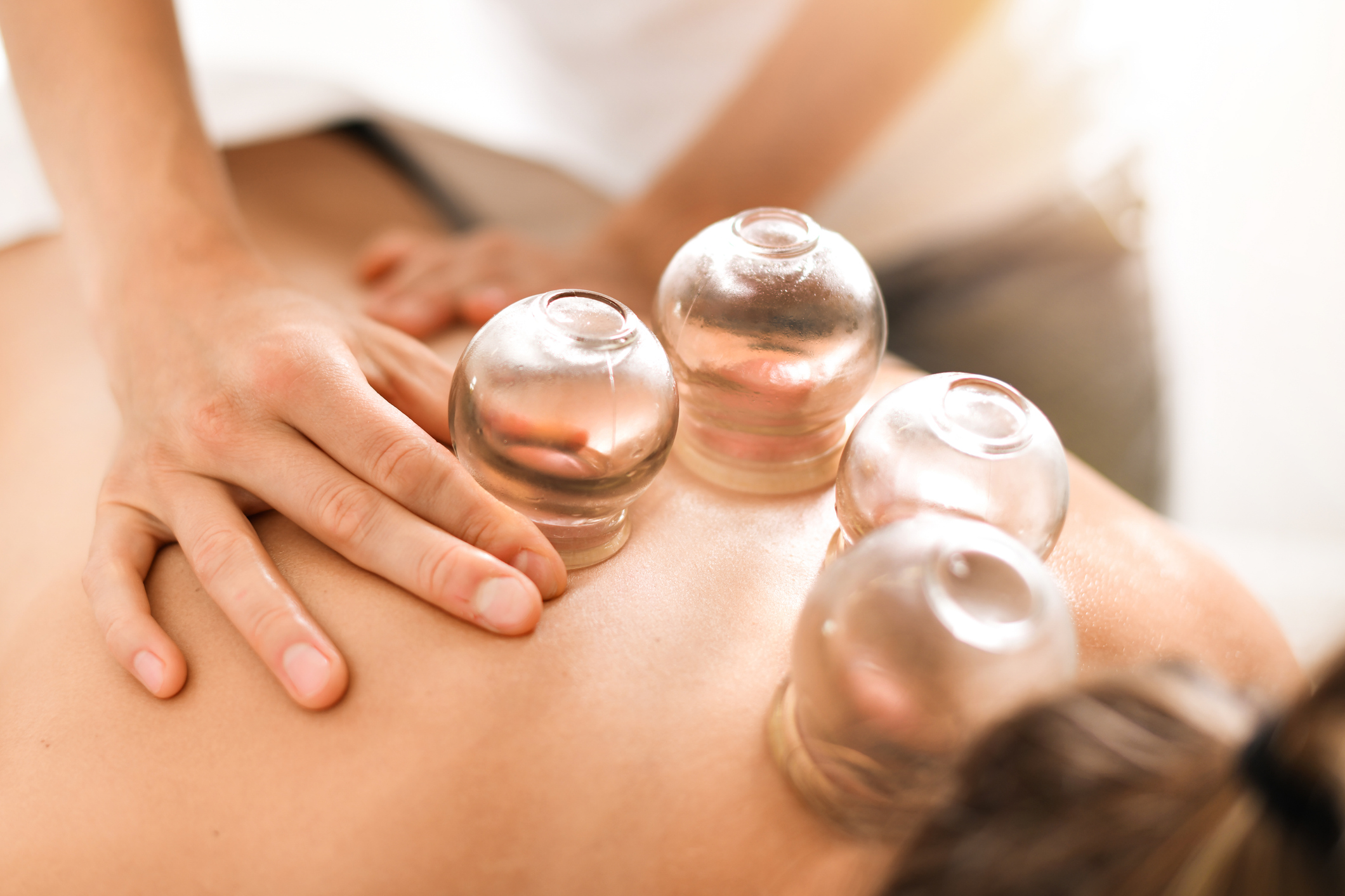
Cupping, a therapy that involves placing heated cups on the skin to create suction, can help with muscle relaxation, pain relief, and enhancing blood circulation. Not just for Olympic swimmers (thanks for the cupping awareness Michael Phelps!), cupping has been used for centuries in Chinese medicine and marries extremely well with acupuncture to address common complaints throughout pregnancy and postpartum.
Overall, acupuncture and cupping are generally considered safe and efficacious for pregnant patients, but should be performed by a licensed acupuncturist who ideally specializes in prenatal care.
Mom.com: What pregnancy symptoms can acupuncture help with?
Dr. Sarah Biffen: We get this question a lot, and the answer is loads of things!
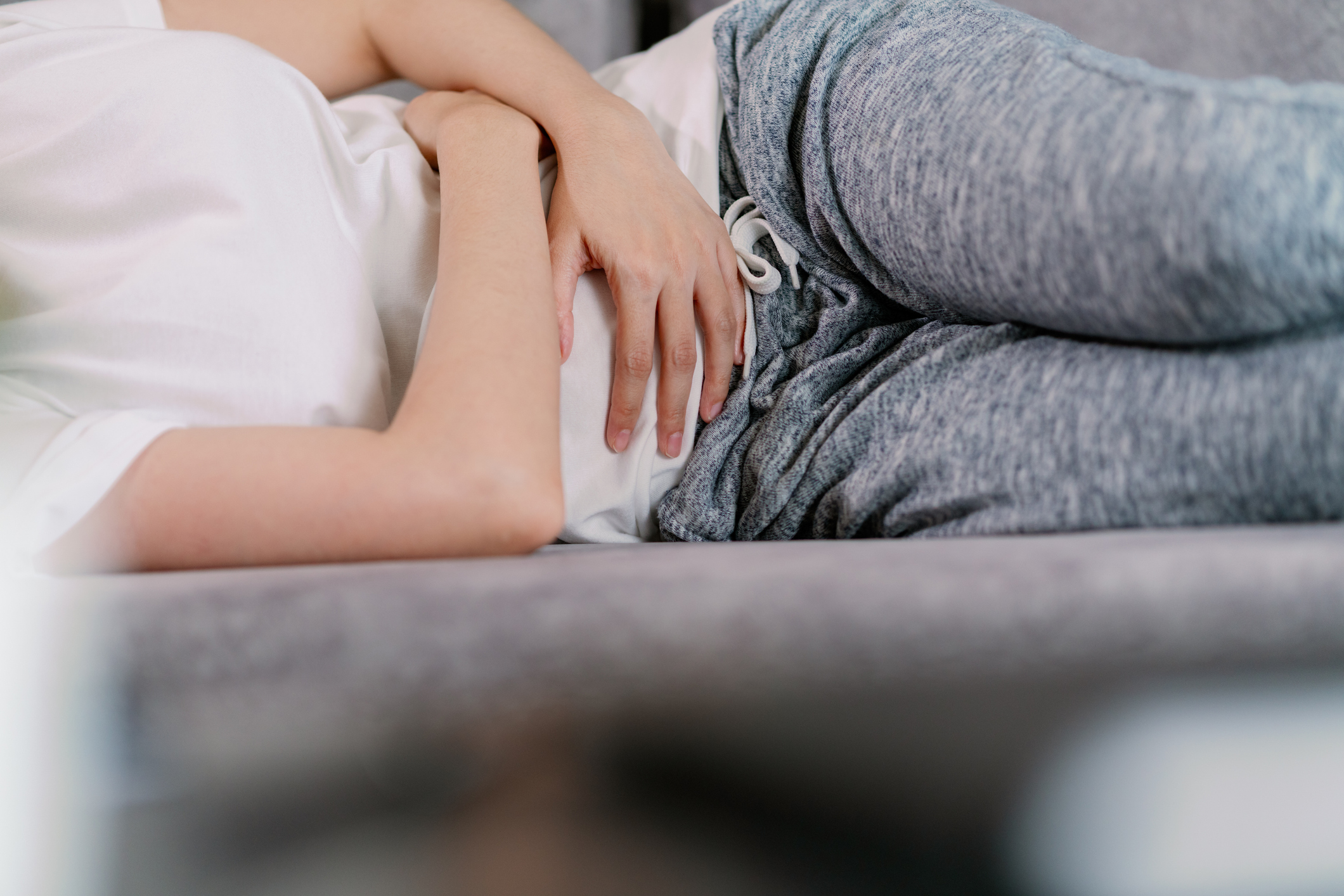
Acupuncture can help manage a variety of pregnancy-related symptoms, including:
- Morning sickness and nausea
- Back pain and sciatica
- Headaches and migraines
- Fatigue and insomnia
- Anxiety and stress
- Swelling and edema
- Heartburn and indigestion
- Pelvic pain and round ligament pain
And the list goes on! No two pregnancies are alike, and nothing is a one-size-fits-all approach.
Mom.com: Who should get acupuncture/cupping while pregnant?
Dr. Sarah Biffen: Acupuncture and cupping are generally safe for most women throughout pregnancy when performed by a licensed and experienced practitioner. However, it's important to avoid certain points and techniques that studies (and tradition) suggest may promote labor prematurely or cause discomfort. We are also very aware of conditions such as high blood pressure, polyhydramnios, breech presentation, sciatica, and certain resting positions that are just plain uncomfortable for pregnant folks. We are happy to work alongside your care team to ensure the safest possible treatment strategies.
For the most part though, women experiencing specific symptoms like nausea, back pain, insomnia, or anxiety, or those looking to support overall pregnancy health, may particularly benefit from both treatment approaches.
Mom.com: Can acupuncture help with labor and delivery?
Dr. Sarah Biffen: Yes, acupuncture can be beneficial in preparing for labor and delivery, and is most often used in the following ways:
- Reducing pain and the need for pain medications
- Encouraging cervical ripening and dilation
- Decreasing labor duration
- Promoting relaxation and reducing stress
- Enhancing uterine contractions and efficiency
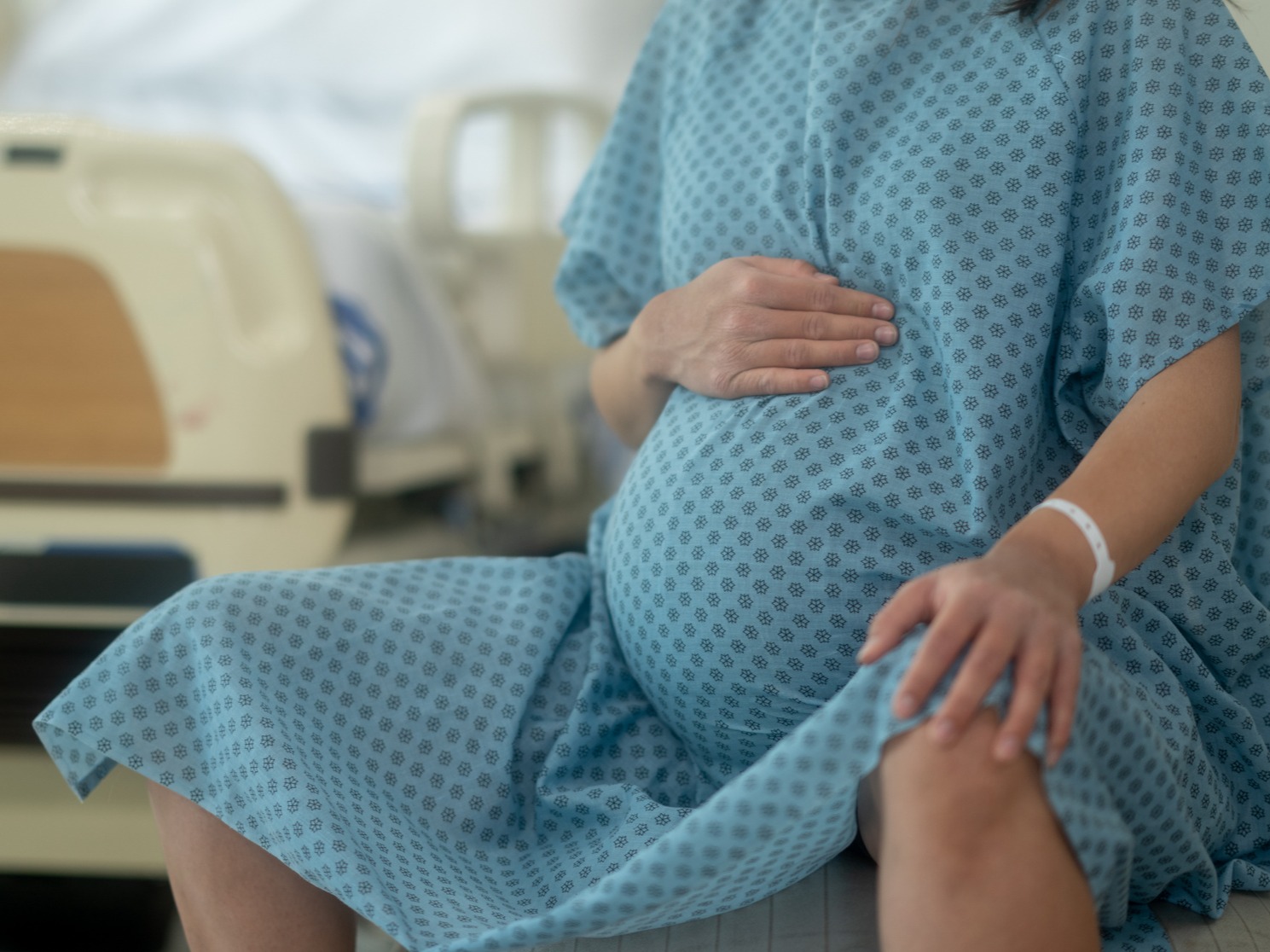
Specific points can be used to help encourage a timely labor process, but no matter what, it’s never a one-size-fits-all strategy!
Mom.com: Is acupuncture also beneficial for postpartum recovery?
Dr. Sarah Biffen: Definitely! Although with new parents it can understandably be difficult to pull themselves away from the home front, working with acupuncture and Chinese medicine during this time can be so beneficial for healing. We’ll frequently work with home visit care in these circumstances if folks aren’t able to come in to the office.
If you’re able to arrange for treatment during the initial postpartum recovery process, we’re very often focusing on:
- Reducing postpartum pain and discomfort
- Helping with hormonal balance and mood regulation, in hopes of addressing postpartum depression and anxiety
- Supporting lactation and managing breastfeeding issues like mastitis
- Boosting energy levels and combating fatigue
- Helping the body recover from childbirth by improving circulation and promoting tissue healing
The postpartum period is also an excellent time to incorporate breastfeeding, safe herbal medicine, supplementary treatment, and dietary therapy.
Mom.com: For people who are afraid of needles, can acupressure be a good alternative?
Yes! Acupressure can be an excellent alternative for those who are needle-averse. Acupressure involves applying pressure to specific points on the body using fingers, palms, or special tools. It can provide similar benefits to acupuncture, such as pain relief, stress reduction, and alleviation of pregnancy-related symptoms. Acupressure can be easily taught and practiced at home, making it a convenient option for ongoing self-care during pregnancy and postpartum.
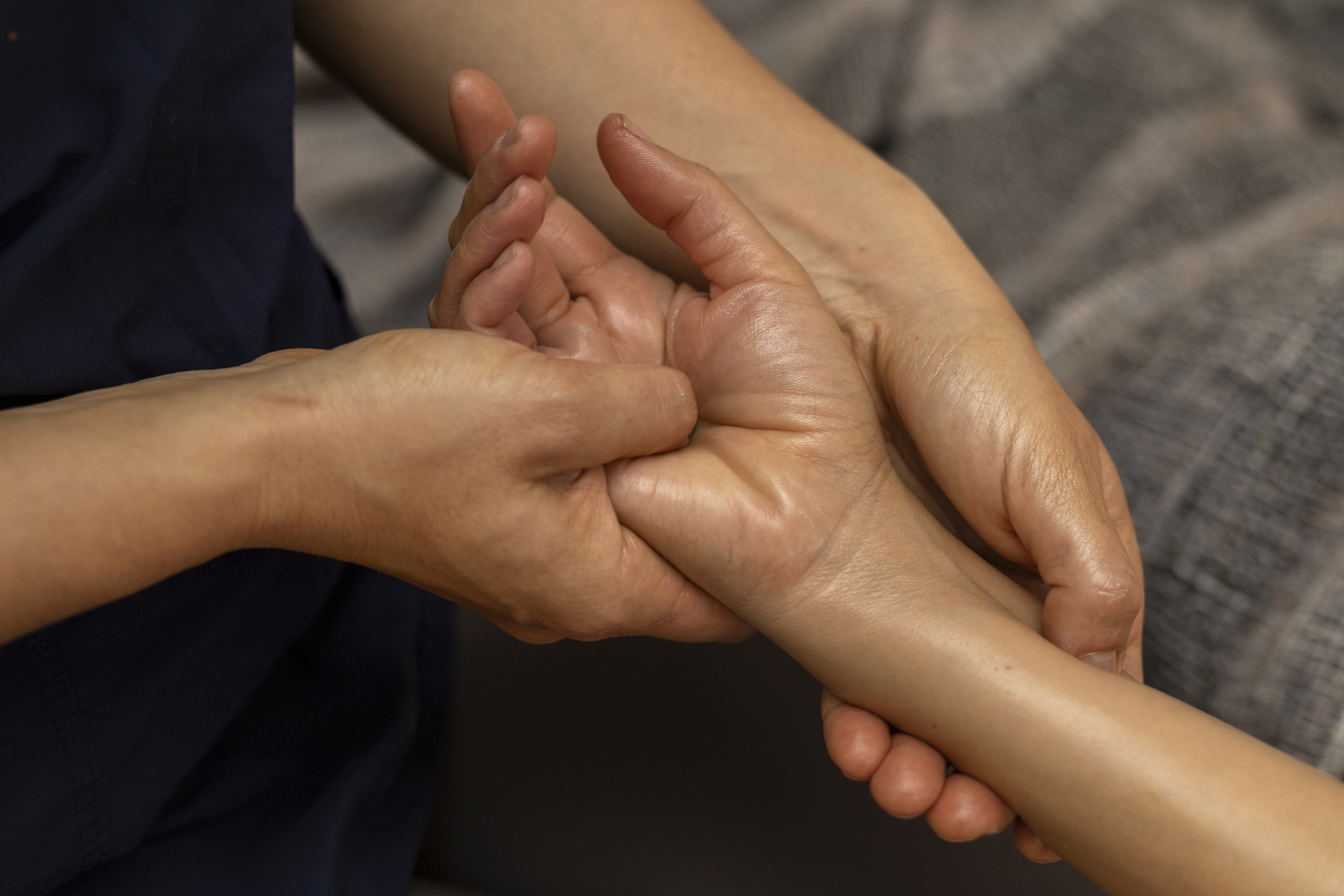
Additionally, ear seeds can be used as a form of acupressure — and I love using these in clinic! These are small seeds or beads that are placed on specific acu points on the ear (also known as auricular acupuncture points) and held in place with adhesive tape. Ear seeds can be effective in addressing various pregnancy-related issues such as nausea, anxiety, and pain. They provide continuous stimulation to the points and offer a non-invasive, convenient option for those that are uncomfortable with needles.
If folks are more needle averse they’re still totally welcome to chat with us about the benefits of acupressure and ear seeds. We coach people how to properly employ these techniques every day, and love to think of it as an at-home treatment strategy.
MY EXPERIENCE
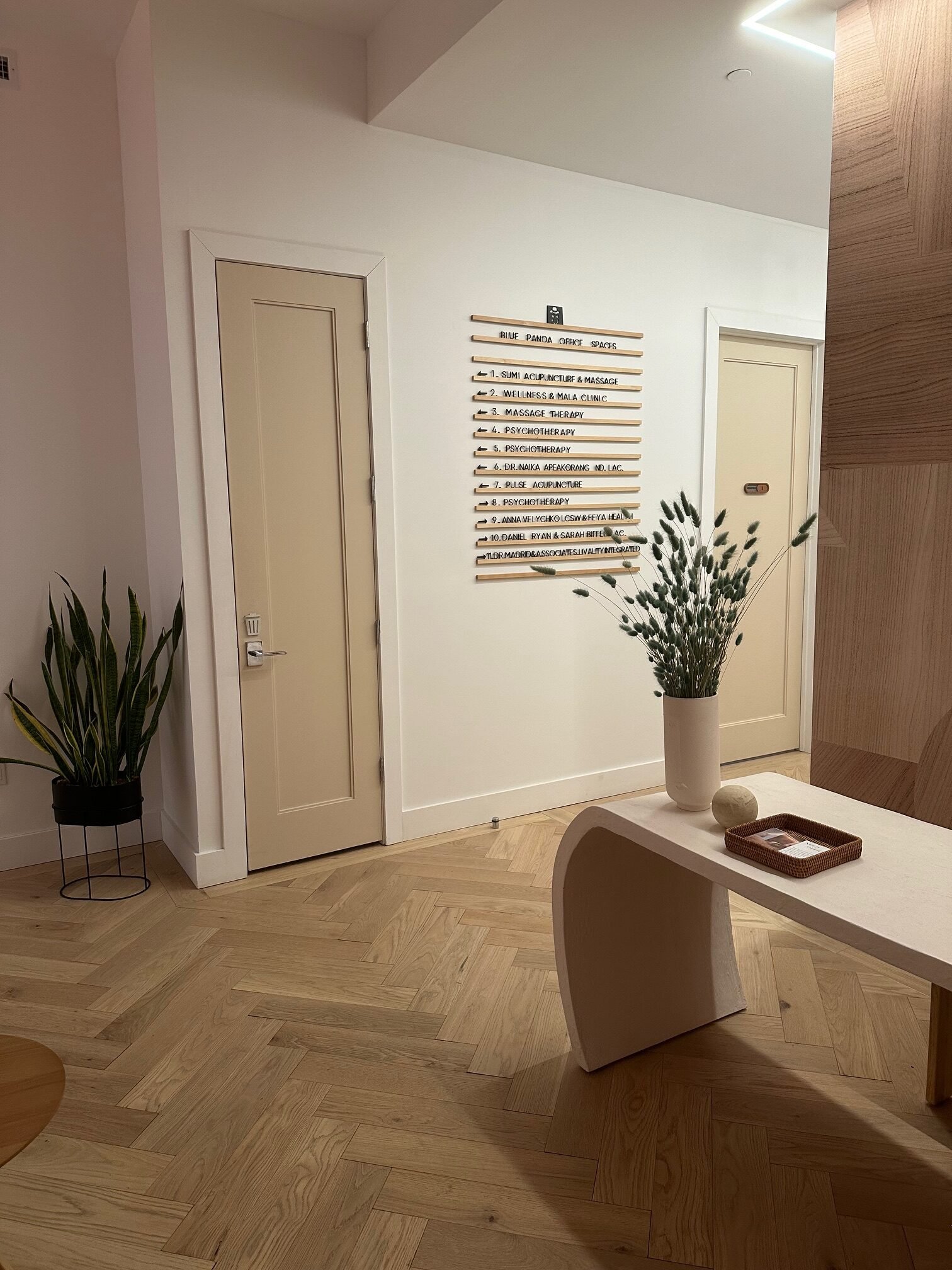
When I arrived at the office, it immediately felt very serene. The room was comfortable and warm, with a massage table, a couch, and a desk. The floor-to-ceiling windows offered a stunning view. I sat down on the couch, and Sarah asked me about what I was hoping to get out of my acupuncture and cupping session. I explained some of my symptoms — hip and pelvic pain, insomnia, and anxiety — and Sarah told me how she thought acupuncture would be able to help.
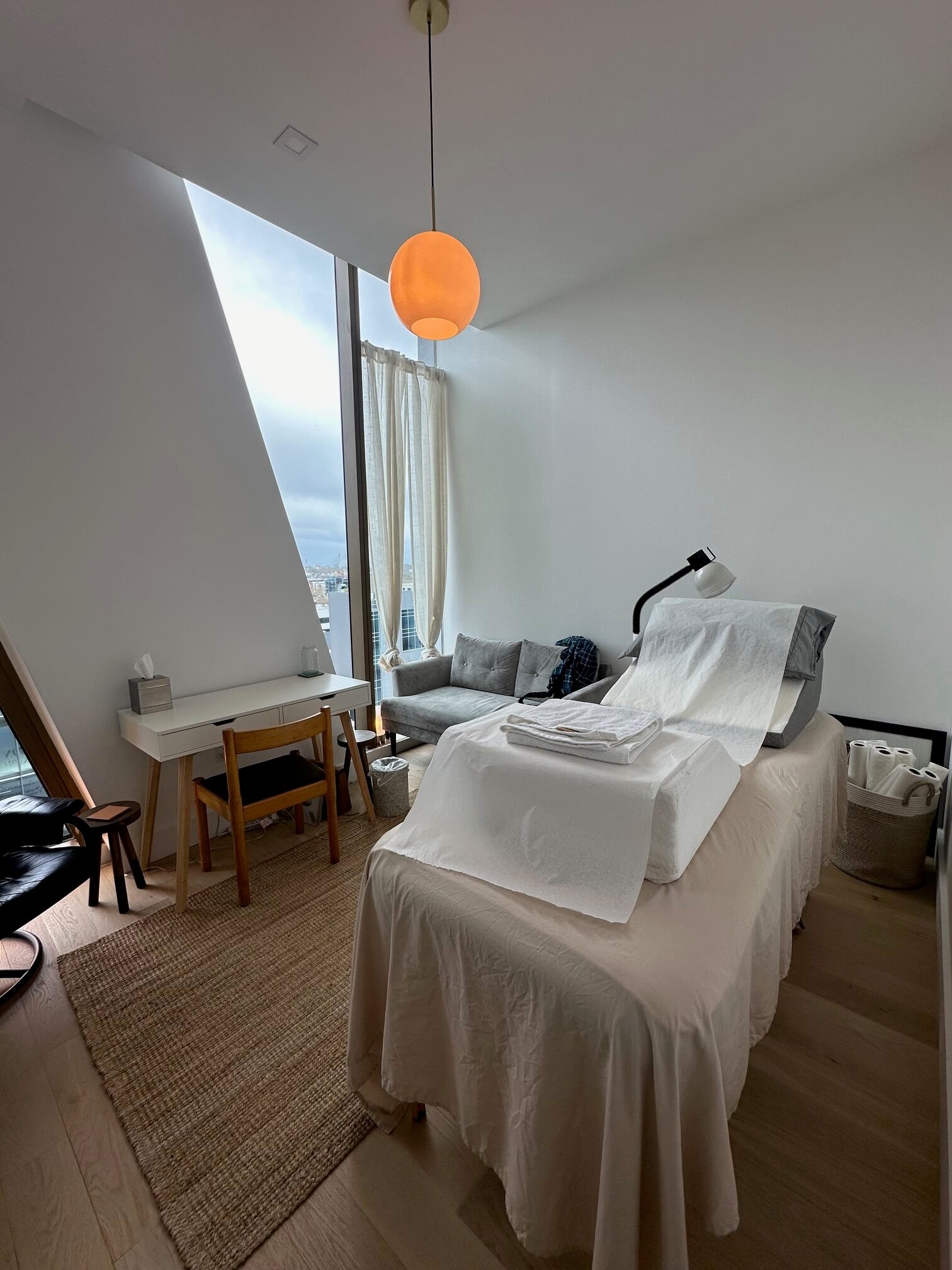
Acupuncture can help induce labor, so many people seek support as they approach the end of their pregnancies. Because I was only 36 weeks pregnant, Sarah didn't want to do any sort of labor-inducing acupuncture or cupping. Instead, she wanted to focus on easing my symptoms and helping me relax.
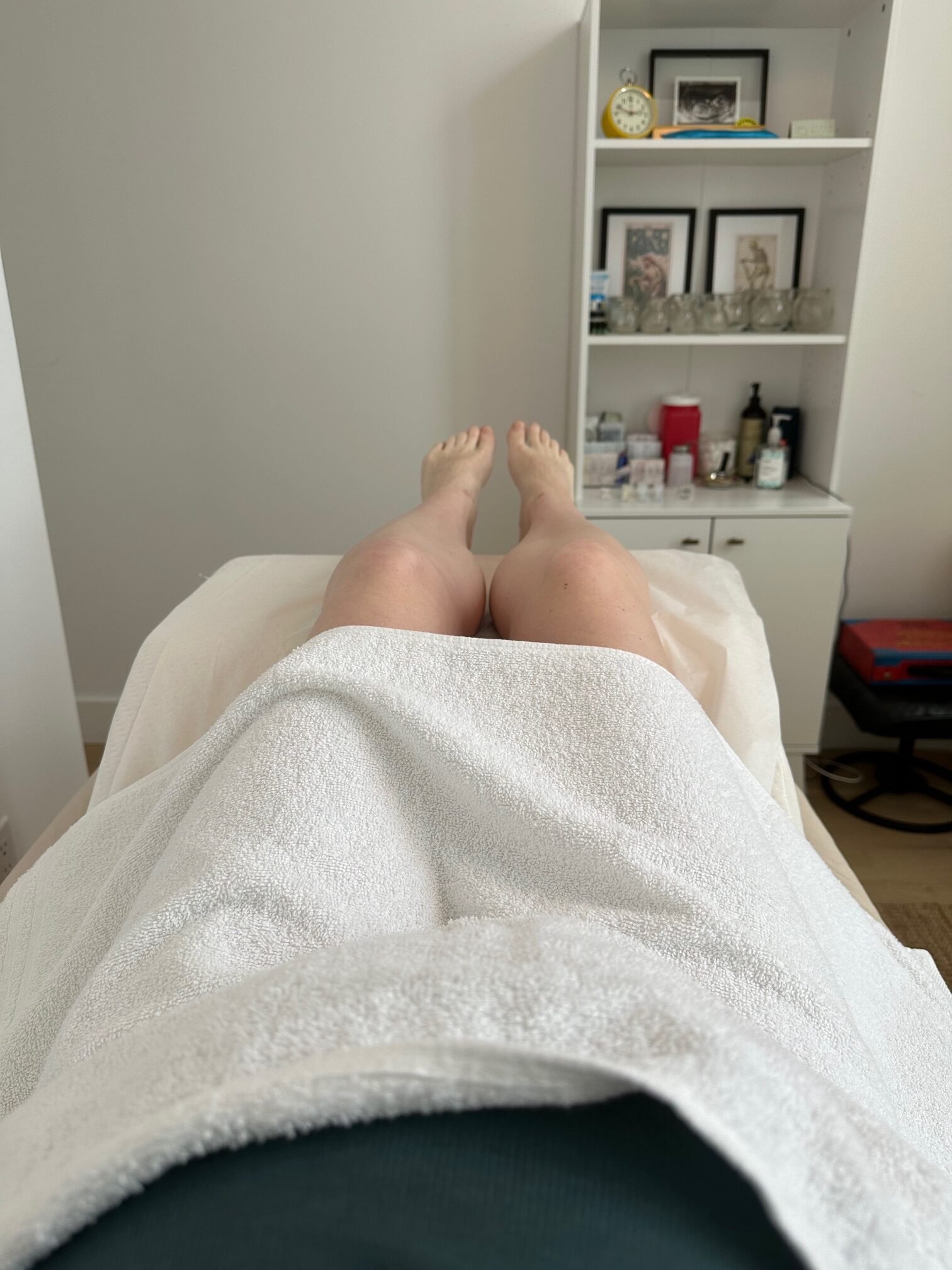
To start the appointment, I got comfortable on the table and Sarah dimmed the lights and turned on some calming music. Then it was time for the needle placement. I don't have any issues with needles, but I still expected to feel a little bit of pain as she put them in my skin.
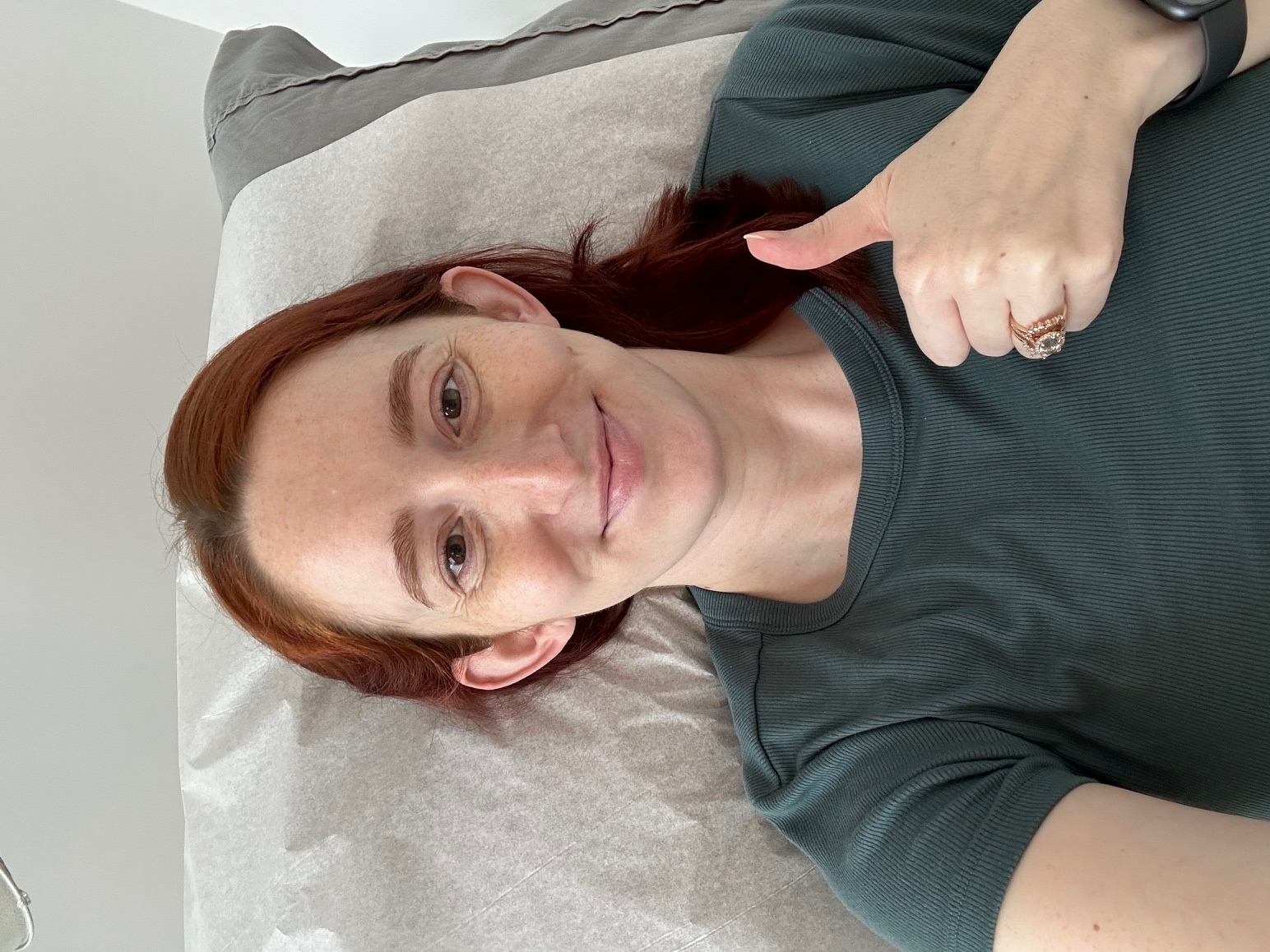
I was surprised that it was totally pain-free; I could feel most of the needles as they were being placed, but it wasn't painful at all.
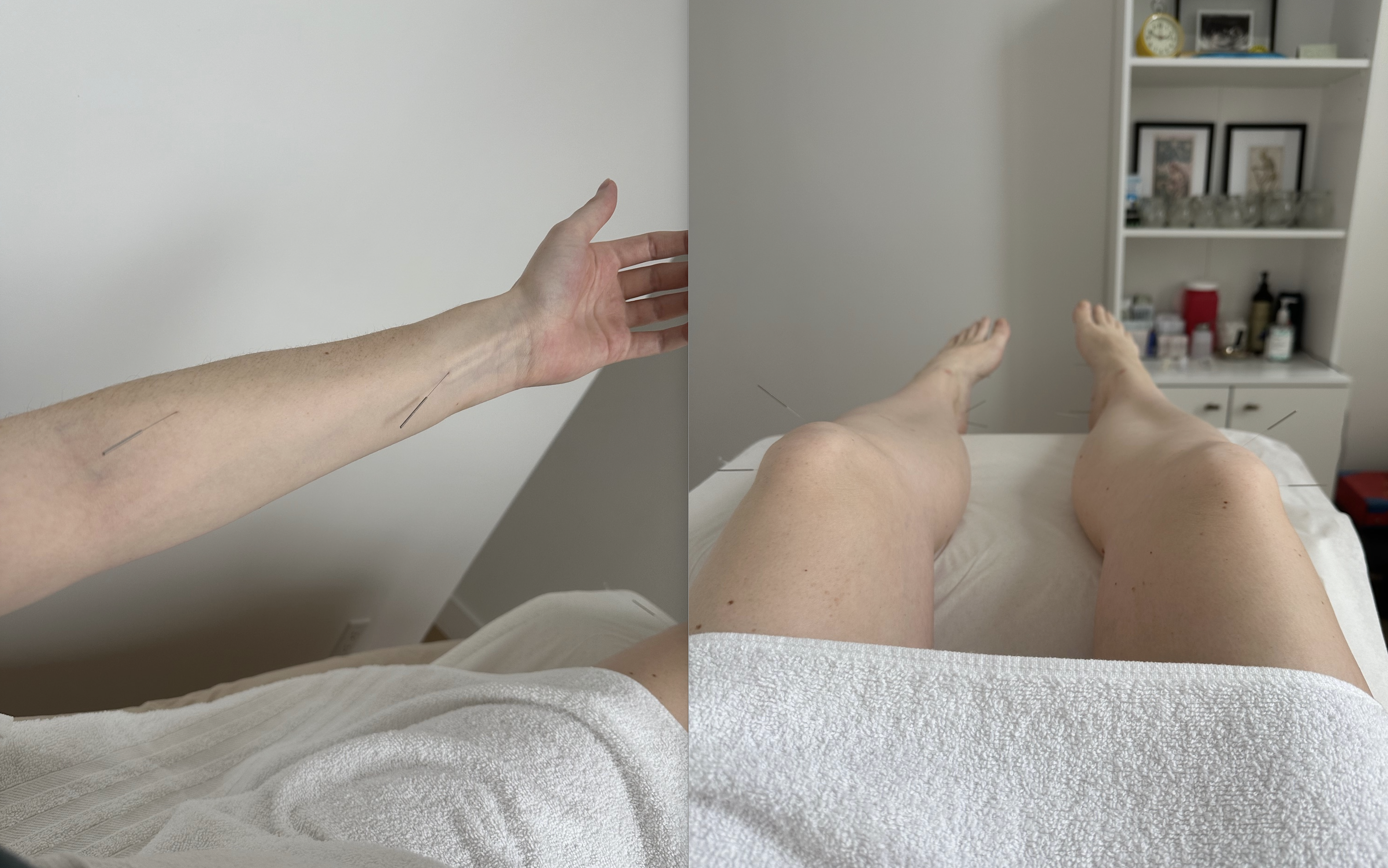
I ended up with around 20 needles in my skin — a few on my legs, a few on my arms, and a few on my head. Once all the needles were in place, Sarah left the room for about 15 minutes so I could close my eyes and relax. When she returned, she took out each of the needles and asked me how I was feeling.
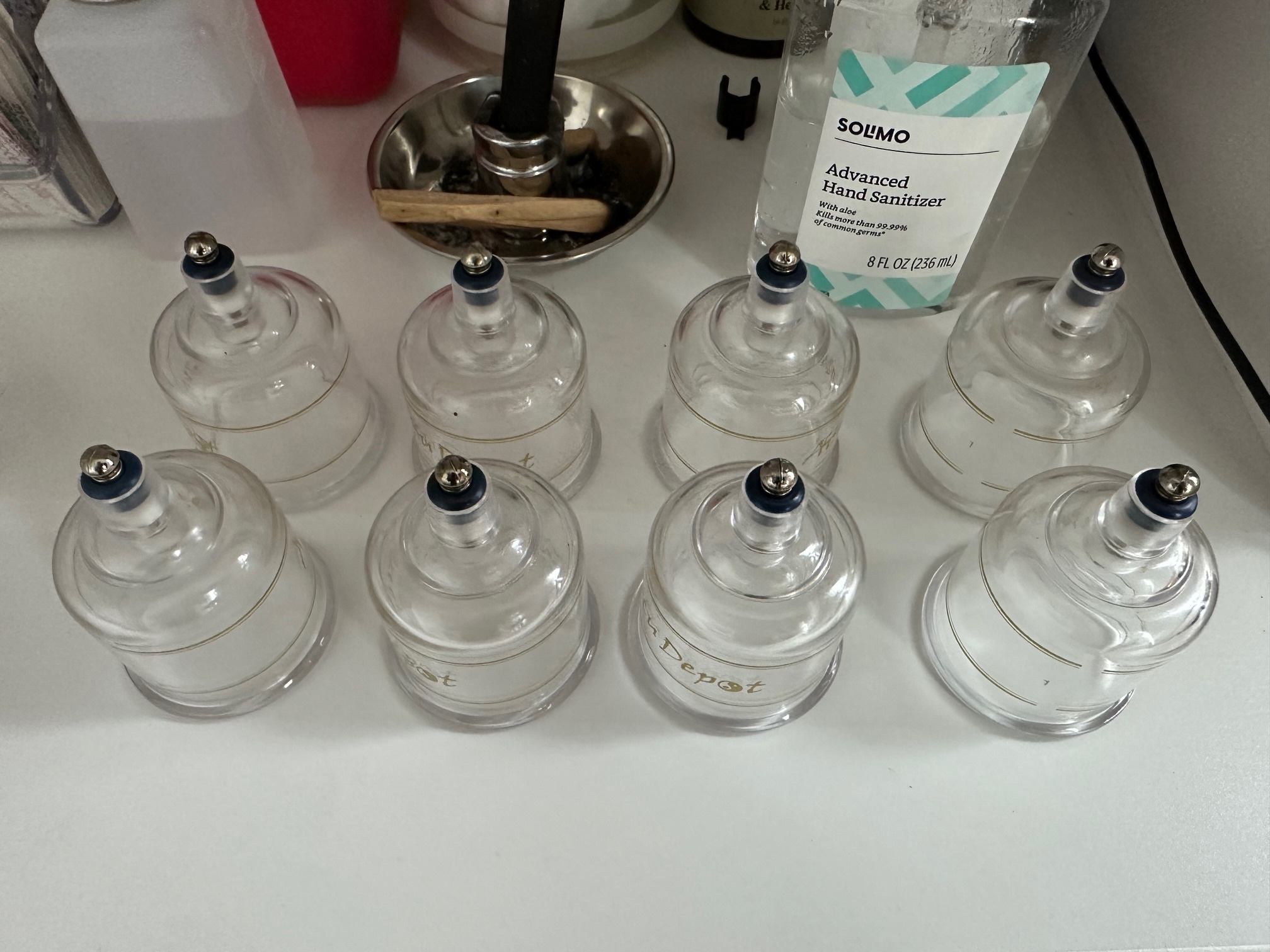
Next it was time for cupping. The only thing I knew about cupping prior to this experience was that Olympians use it for muscle pain — so I was excited to give it a shot. I was hoping to get some relief from the back tightness, hip soreness, and pelvic pain that I'd started having during the third trimester.
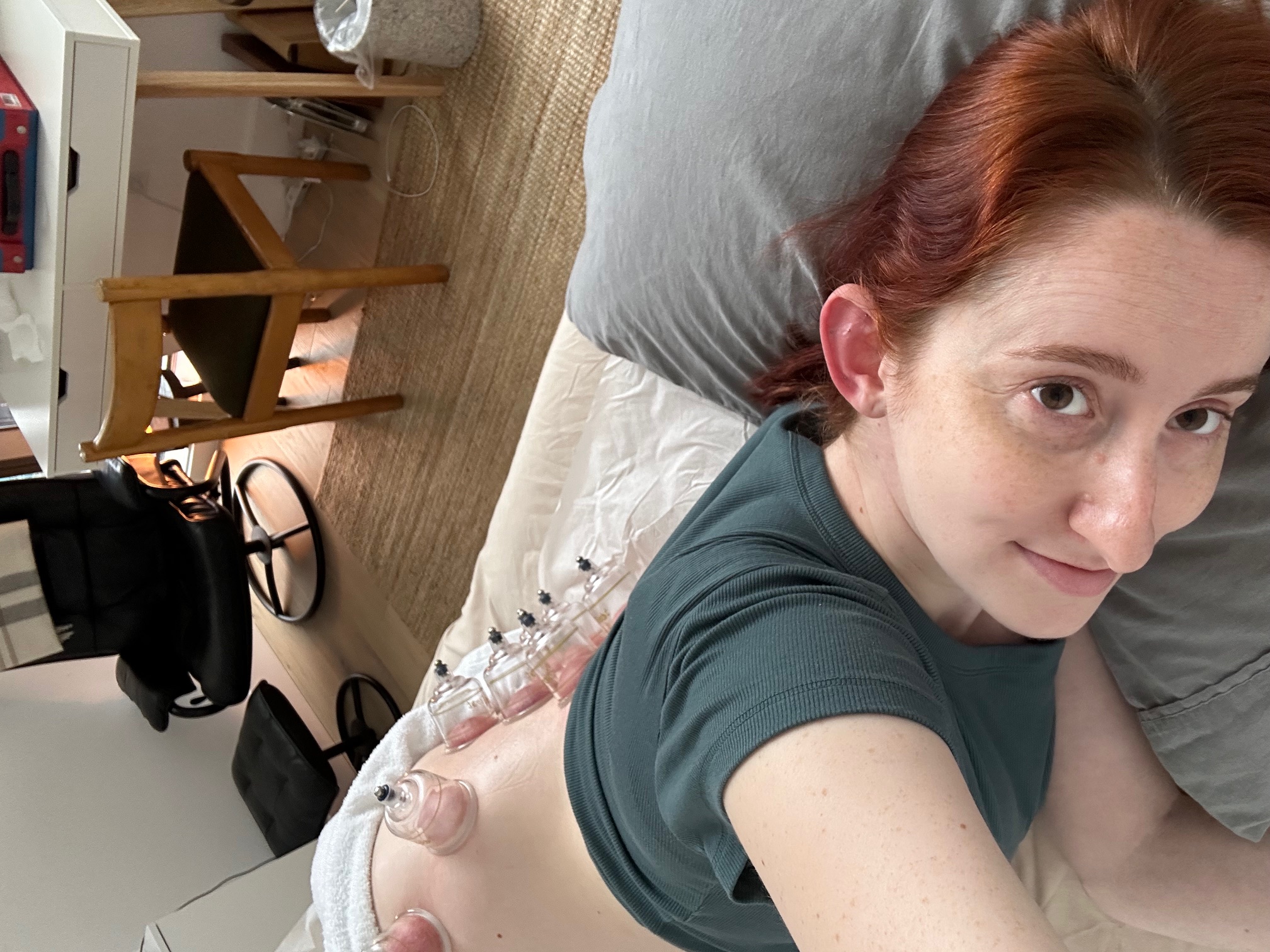
For this part of the appointment, I turned onto my side so Sarah could suction the cups to my back. Again, this wasn't painful, but I could feel my skin being pulled taut. It was a little uncomfortable, but it also felt effective (kind of like the discomfort you feel during an intense massage).
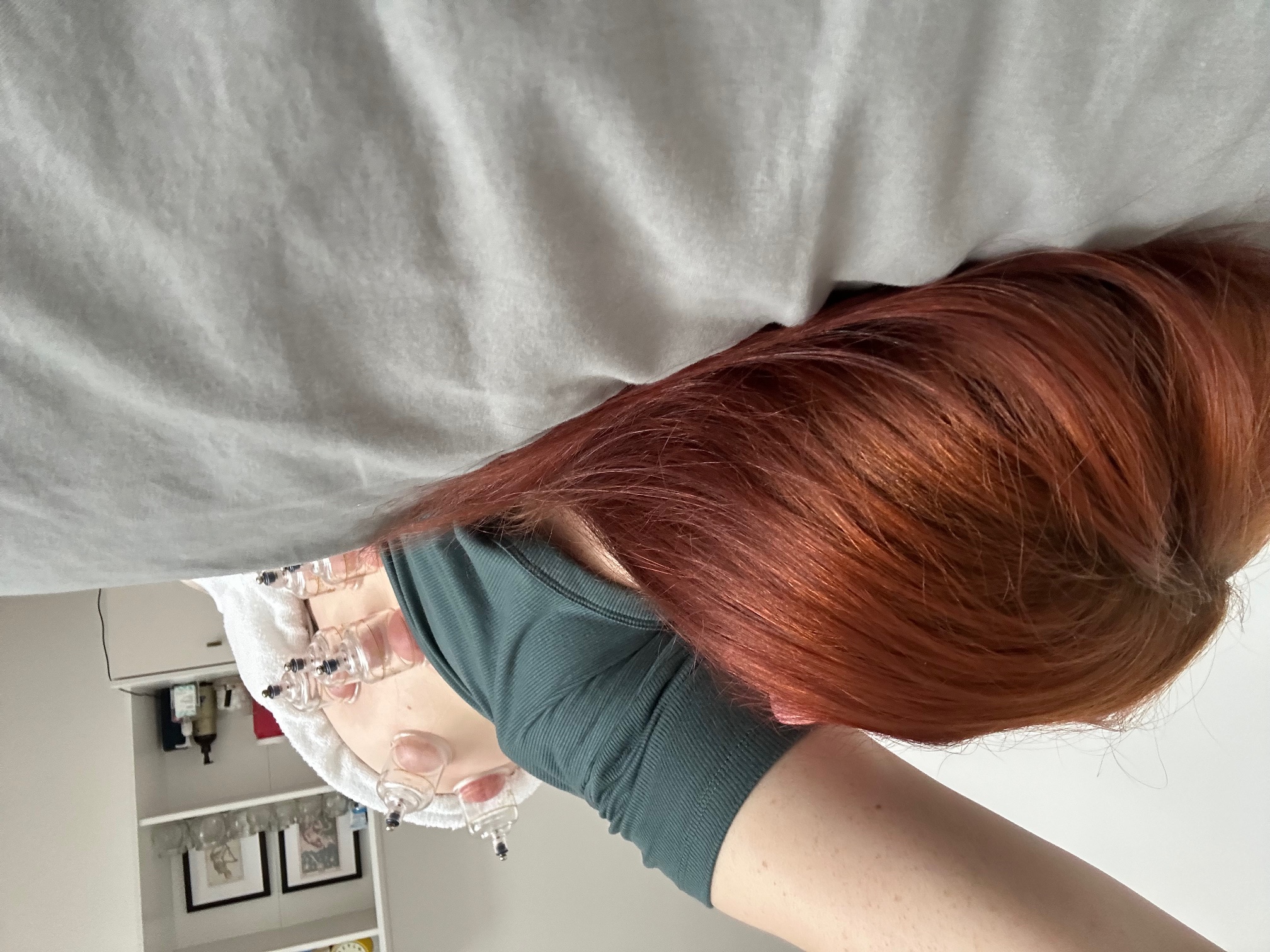
Sarah left the cups on for about 10 minutes, then removed them. (Yes, I did end up with the red circles all over my back.)
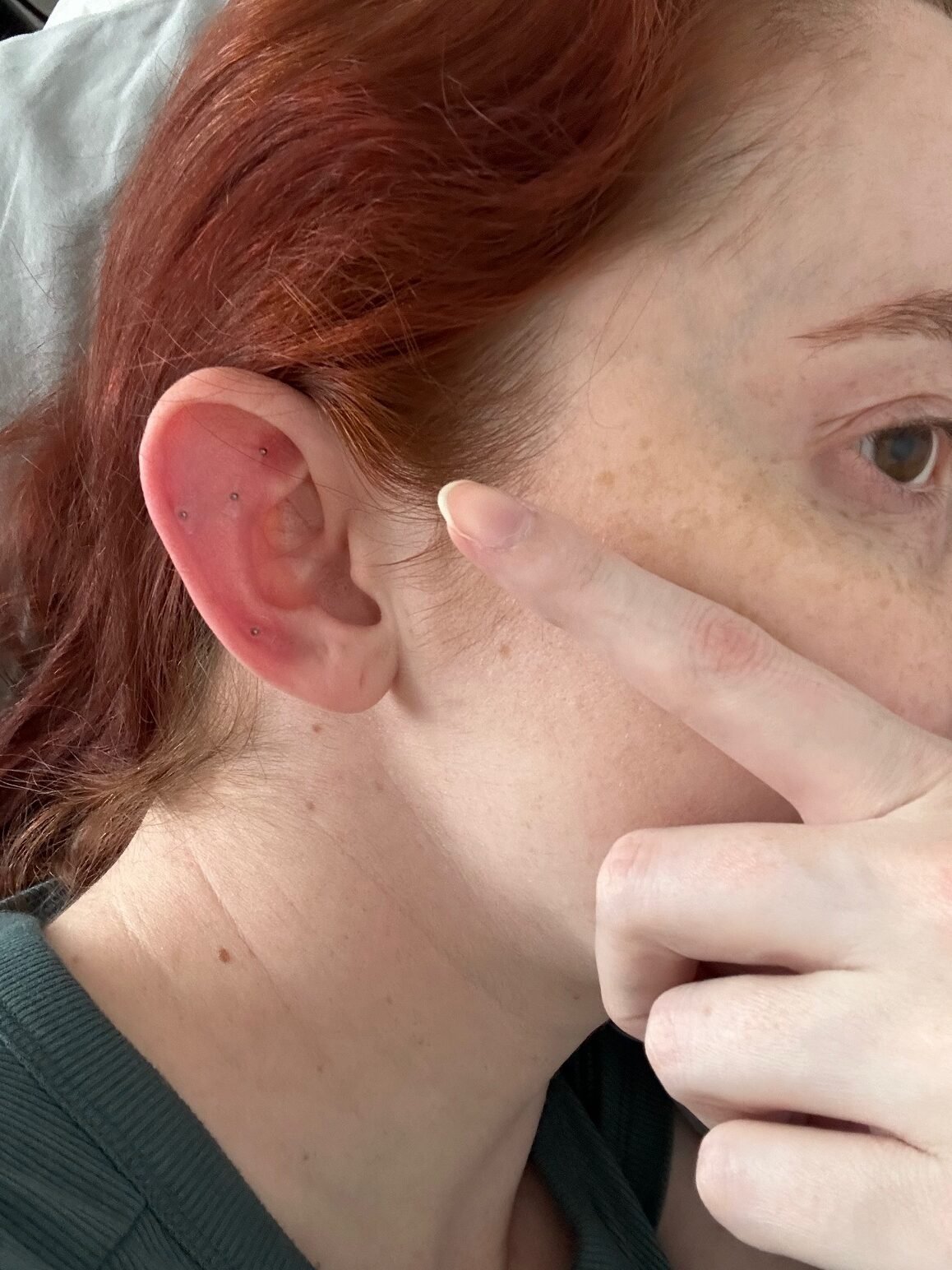
While the cups were on my back, Sarah also placed ear seeds on my ears. The acupressure from these ear seeds can promote comfort, relaxation, and reduce insomnia and anxiety. The seeds can stay on overnight to provide continual support. I have very sensitive ears, so I wasn't able to sleep with the ear seeds.
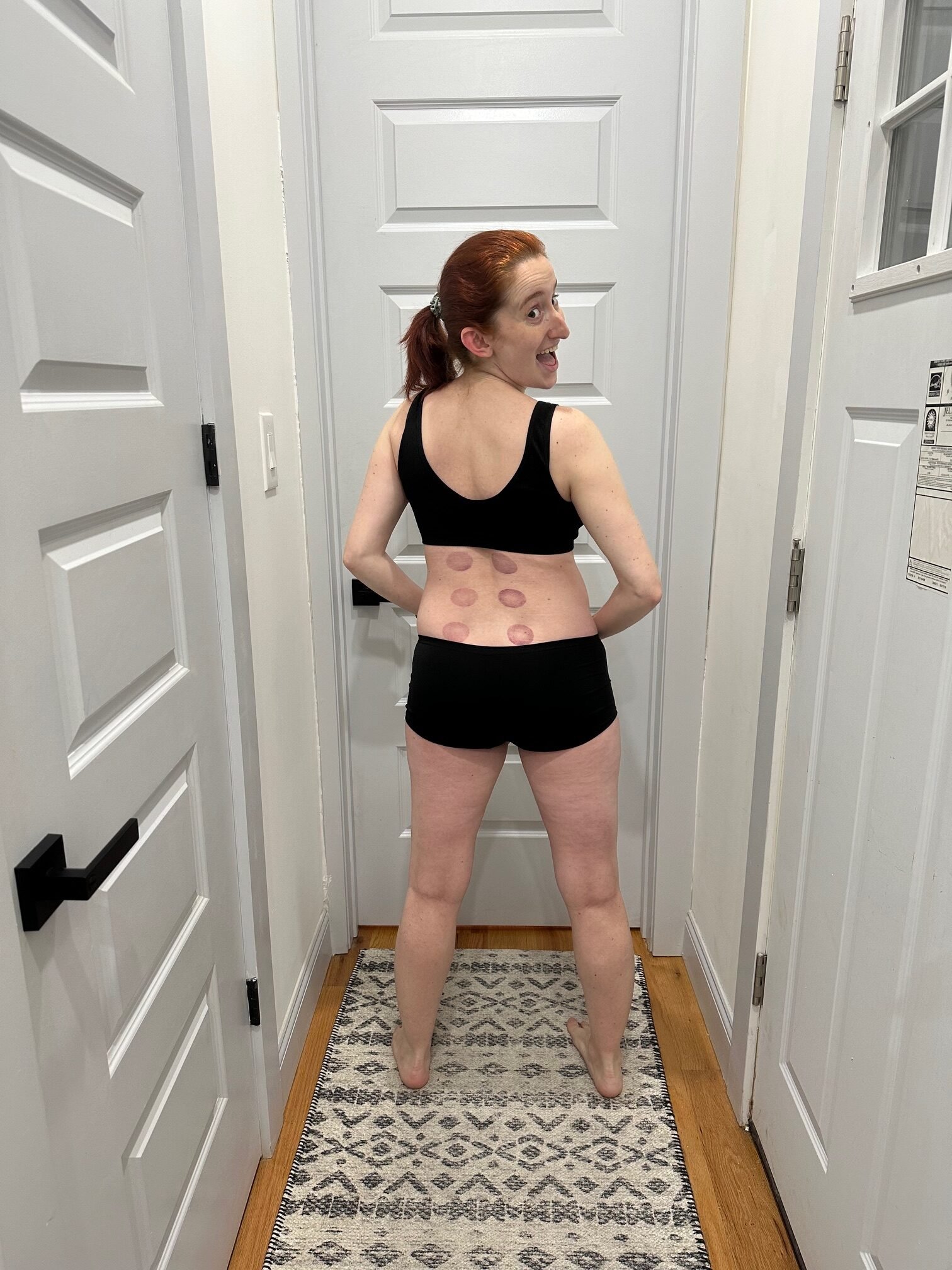
Acupuncture and cupping are best used as an ongoing practice, so it's hard to say whether or not I had significant results (at least in the ways I expected). I had planned on making another appointment, but I ended up going into labor just three days later!
Overall, I'm so glad I tried out acupuncture and cupping. I would absolutely do both again. The experience was relaxing and refreshing, and I left the appointment feeling more comfortable and less worried about childbirth and the transition to motherhood.



